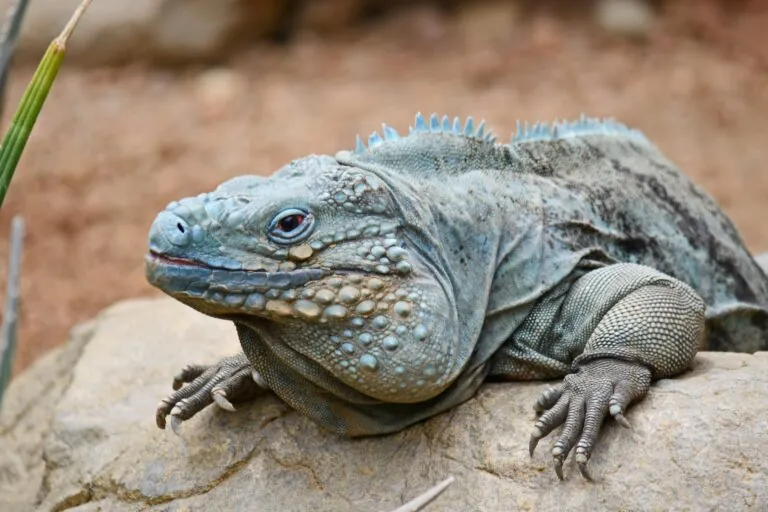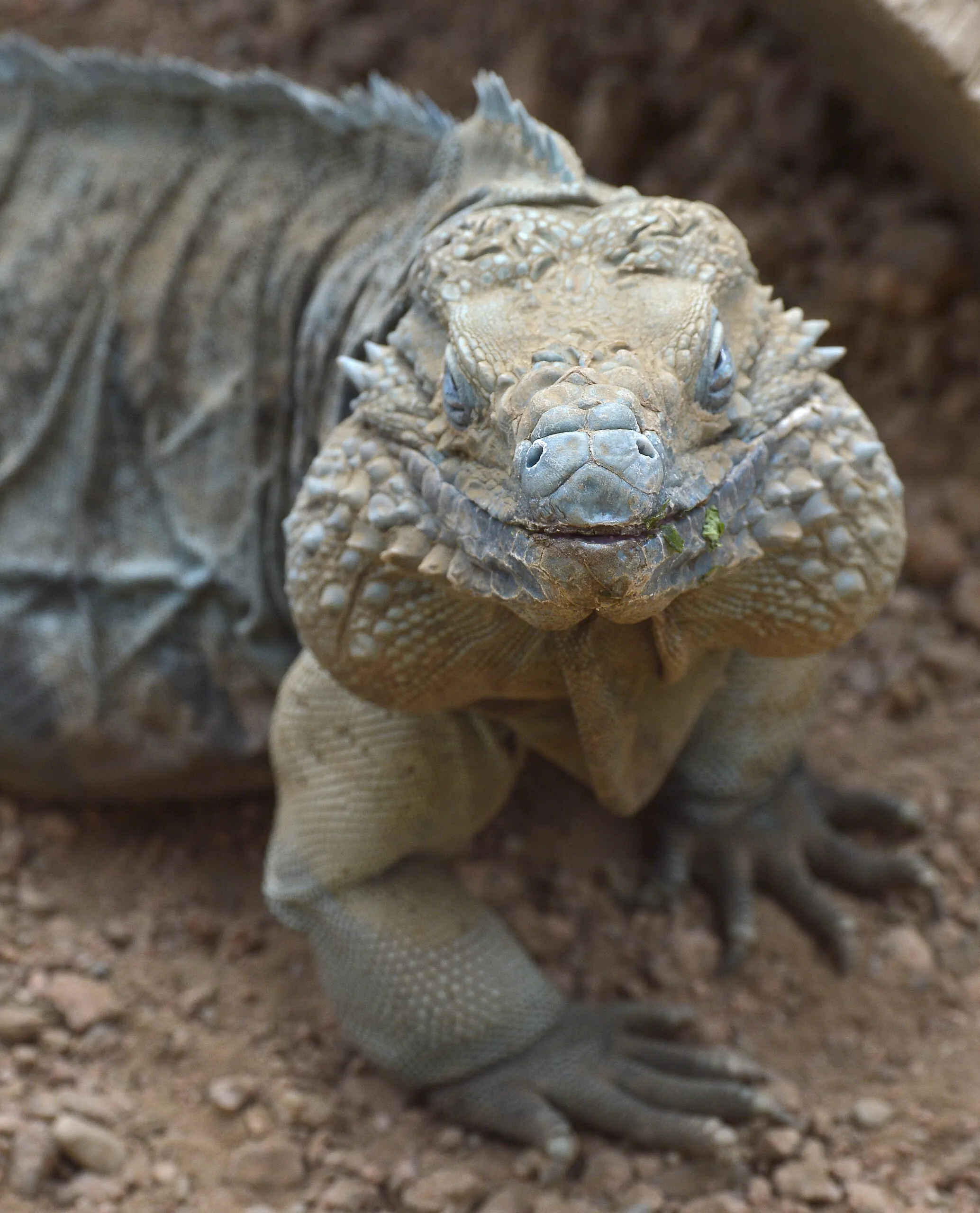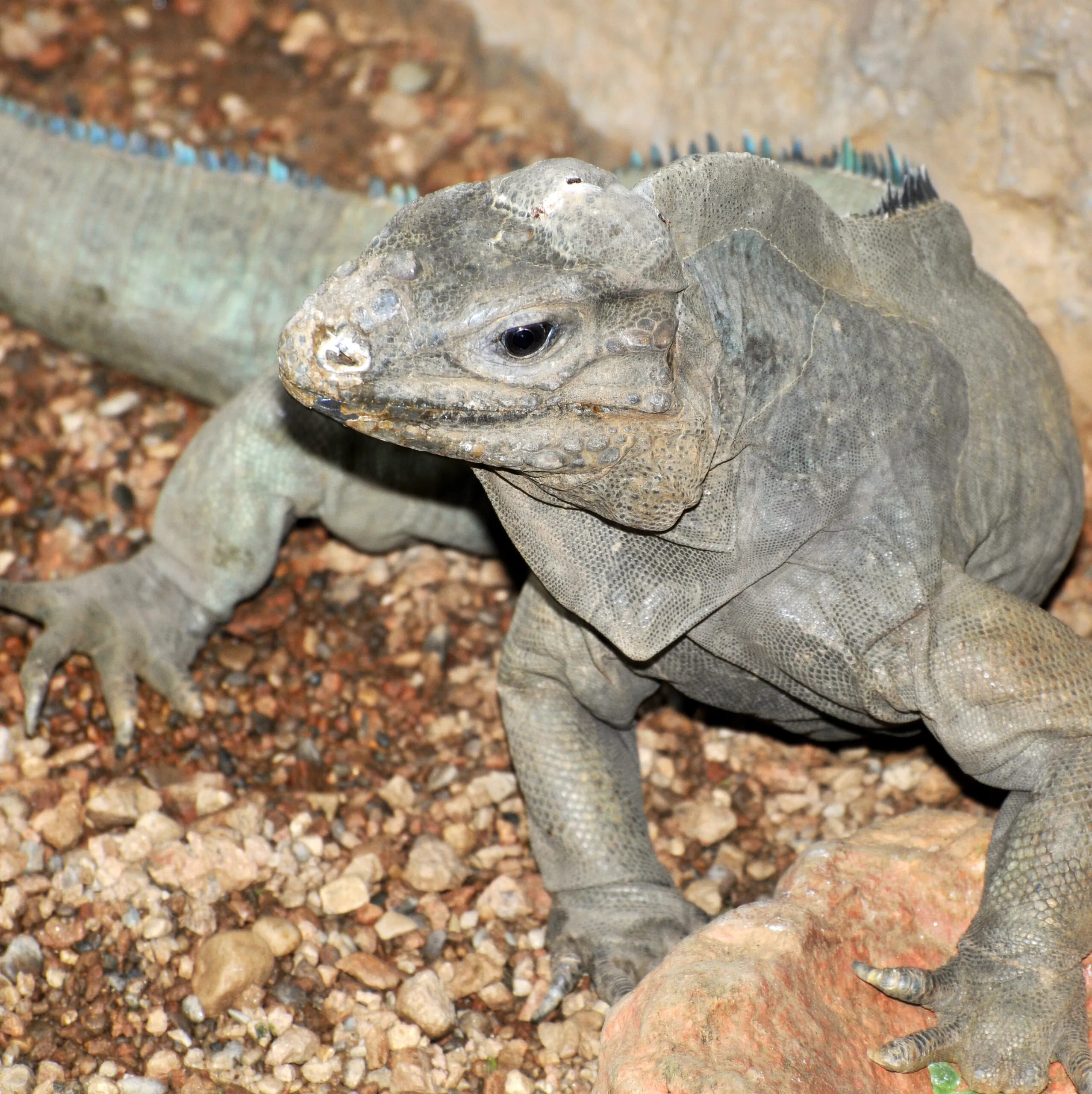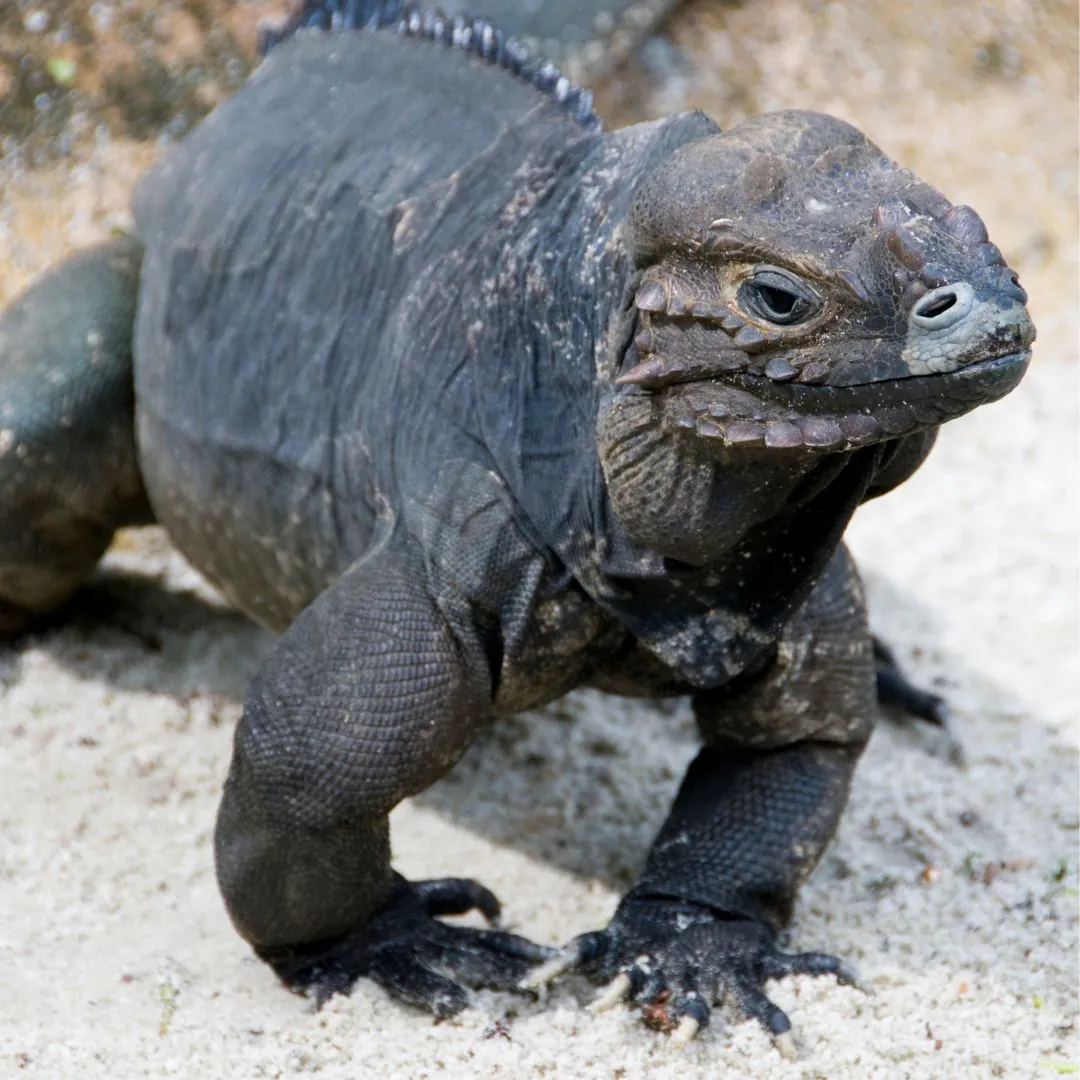-
Menu
- Plan Your Visit
- Meet The Animals
- Check Out Events
- Memberships
- About The Zoo
- Support the Zoo
- Conservation
- Education
- Groups & Private Events
- Zoo News
- Contact
- Zoo Store
- Indianapolis Prize
- Global Center for Species Survival
- Schedule
- Donate
- Membership
- Tickets

- Plan Your Visit
- Meet The Animals
- Check Out Events
- Memberships
- About The Zoo
- Support the Zoo
- Conservation
- Education
- Groups & Private Events
- Zoo News
- Contact
- Zoo Store
- Indianapolis Prize
- Global Center for Species Survival

Iguanas
About
Iguanas are large lizards that live in tropical dry forests, shrublands and rocky outcroppings in the Caribbean and the Americas. Their tail makes up half their body length! They live mostly solitary lives on land, using burrows or rock crevices for shelter or nesting. By day, they forage for vegetation and an occasional invertebrate. Males can be aggressive about their territories, using head-bobbing displays to communicate with other males, or with females during mating season. Females lay up to 20 or more eggs in a nest dug into the ground. The eggs incubate for up to 3 months, with mom sometimes guarding the nest for a few weeks. Iguanas can live up to 40 years or more.

Conservation
A number of iguana species are threatened with extinction because of habitat destruction, hunting, trade and predation by invasive animals. Some species have only a few dozen or hundred individuals left. Captive breeding programs have helped save some of them. The Indianapolis Zoo was the first zoo to successfully breed Jamaican rock iguanas in 2006, doubling the population in human care at zoos at that time! You can help local wildlife thrive by keeping pets such as cats indoors to protect native species from predation.
WHERE ARE THEY AT THE ZOO?

Meet the Iguanas

Live in Grand Cayman Island. They are one of the largest lizards in the Western Hemisphere and longest-living in the world. Males turn blue during mating season. IUCN Red List status: Endangered due to invasive species, habitat loss and fragmentation

Live in Jamaica and is their largest native land vertebrate. They are smaller than the other two species at the Zoo. IUCN Red List status: Critically Endangered because of small population and range, invasive predators and habitat degradation

Live in Hispaniola. They get their name from the horny growths on their heads. IUCN Red List status: Endangered because of the habitat loss, collecting and invasive predators
